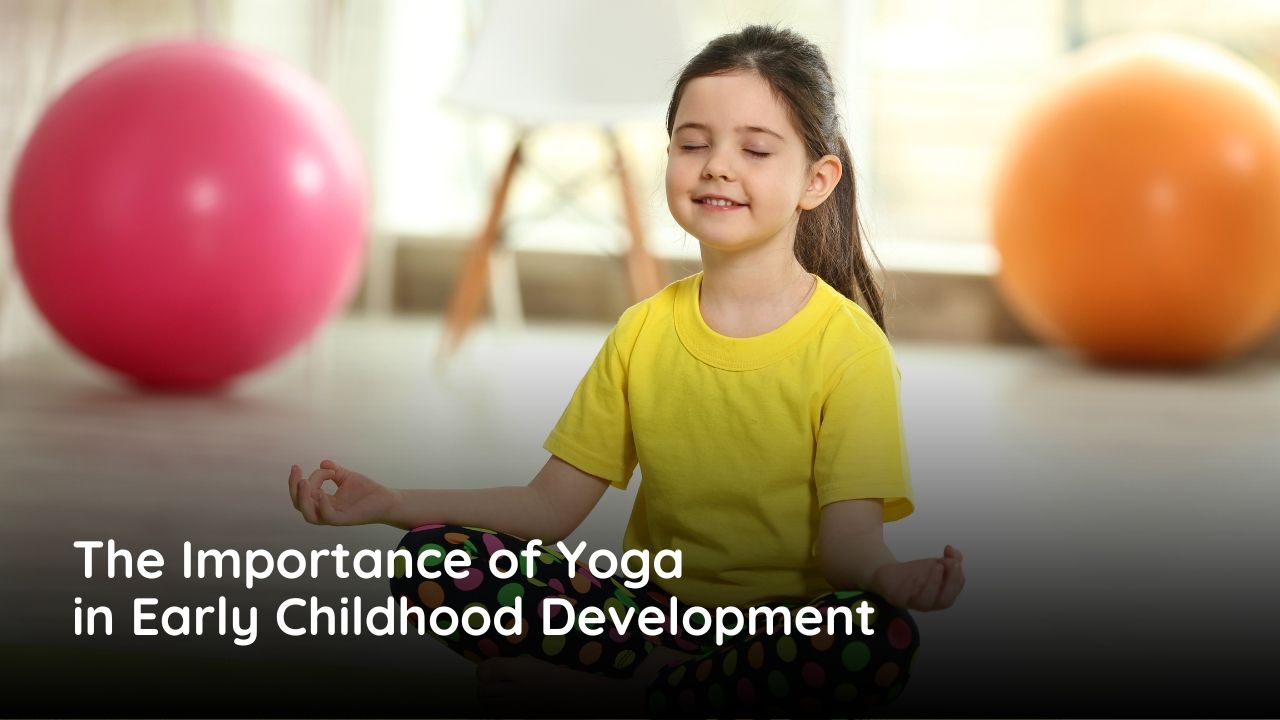The Importance of Yoga in Early Childhood Development
Mar 17, 2025
In today’s fast-paced world, children are exposed to increasing levels of stress and overstimulation from a young age. Yoga, an ancient practice rooted in mindfulness and movement, offers a powerful solution to help young children develop physically, emotionally, and mentally. In this blog, we explore the role of yoga in early childhood development, backed by research, expert opinions, and practical strategies for parents and educators.
The Benefits of Yoga for Young Children
1. Physical Development
Yoga supports the development of gross and fine motor skills, helping children build strength, balance, and coordination. Studies have shown that regular yoga practice enhances flexibility and muscle tone, reducing the risk of injury as children grow.
Key Benefits:
-
Enhances balance and coordination
-
Improves posture and muscle strength
-
Boosts body awareness and proprioception
2. Cognitive Growth
Through mindful breathing and movement, yoga fosters concentration and focus. Research indicates that children who practise yoga regularly exhibit improved attention spans and problem-solving abilities, which are crucial for academic success.
Key Benefits:
-
Enhances memory and concentration
-
Supports cognitive flexibility
-
Encourages creative thinking
3. Emotional and Social Development
Yoga teaches children self-regulation techniques, helping them manage emotions effectively. It also fosters empathy and social connection, especially when practised in a group setting.
Key Benefits:
-
Reduces anxiety and stress
-
Encourages emotional resilience
-
Promotes social bonding and teamwork
How Yoga Addresses Common Childhood Challenges
1. Managing Anxiety and Stress
With rising cases of childhood anxiety, yoga serves as a natural stress-relief tool. Techniques like deep breathing and guided relaxation activate the parasympathetic nervous system, promoting a sense of calm.
2. Improving Sleep Quality
Yoga helps regulate sleep patterns by calming the nervous system and establishing a bedtime routine. Studies suggest that children who engage in mindfulness practices sleep better and wake up feeling refreshed.
3. Encouraging Mindfulness and Self-Awareness
Teaching children mindfulness from an early age equips them with lifelong skills to manage their emotions, reduce impulsive behaviour, and develop self-discipline.
Implementing Yoga in Early Years Education
1. Integrating Yoga into the Classroom
Educators can incorporate short yoga sessions into daily routines to enhance focus and reduce restlessness. Simple stretches, breathing exercises, and mindfulness activities can make a significant difference.
2. Parental Involvement in Yoga
Parents can introduce yoga at home through fun, interactive poses and storytelling. Engaging in yoga together strengthens the parent-child bond while promoting healthy habits.
3. Yoga and Special Educational Needs (SEN)
Yoga is highly beneficial for children with special educational needs, such as autism or ADHD. It provides a structured, calming activity that improves self-regulation and motor skills.
Expert Insights and Case Studies
Experts in child development and yoga therapy advocate for the inclusion of yoga in early childhood education. Case studies have shown that schools implementing yoga programmes report improvements in behaviour, concentration, and overall well-being among students.
Frequently Asked Questions (FAQs)
Q: What age is best to introduce yoga to children? A: Yoga can be introduced as early as 18 months with simple movements and breathing exercises.
Q: How often should children practise yoga? A: Ideally, children should practise yoga 2-3 times per week for optimal benefits.
Q: Do children need a yoga mat or special equipment? A: No, yoga can be practised on any soft surface, such as a carpet or a blanket.
Yoga is a holistic approach to early childhood development, fostering physical strength, emotional resilience, and cognitive growth. By incorporating yoga into daily routines at home and in schools, parents and educators can empower children with essential life skills.
Are you interested in introducing yoga to your child or classroom? Explore our Early Years Yoga Teacher Training Course or sign up for our newsletter for expert tips and resources.
Sign Up For Our Monthly Newsletter
Receive monthly emails with news, blogs and articles about teacher training courses, yoga, mindfulness, education and so much more.
We hate SPAM. You'll only get quality content.

